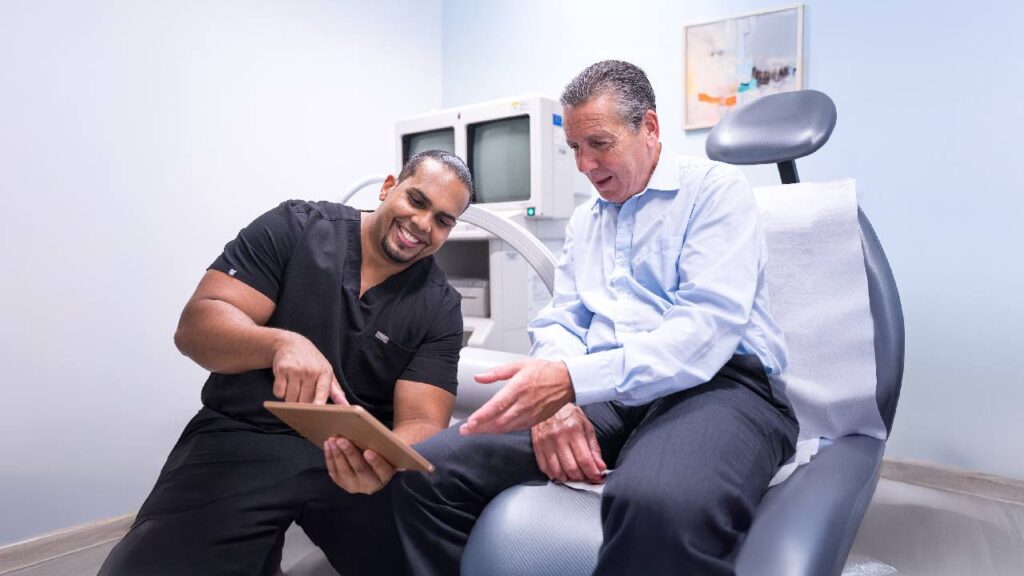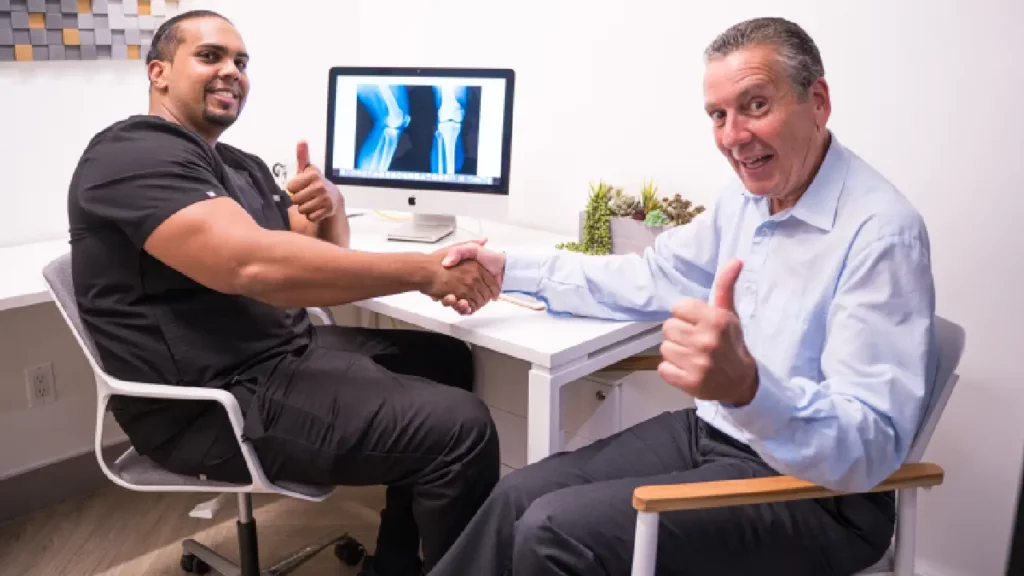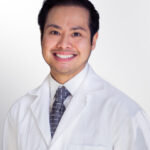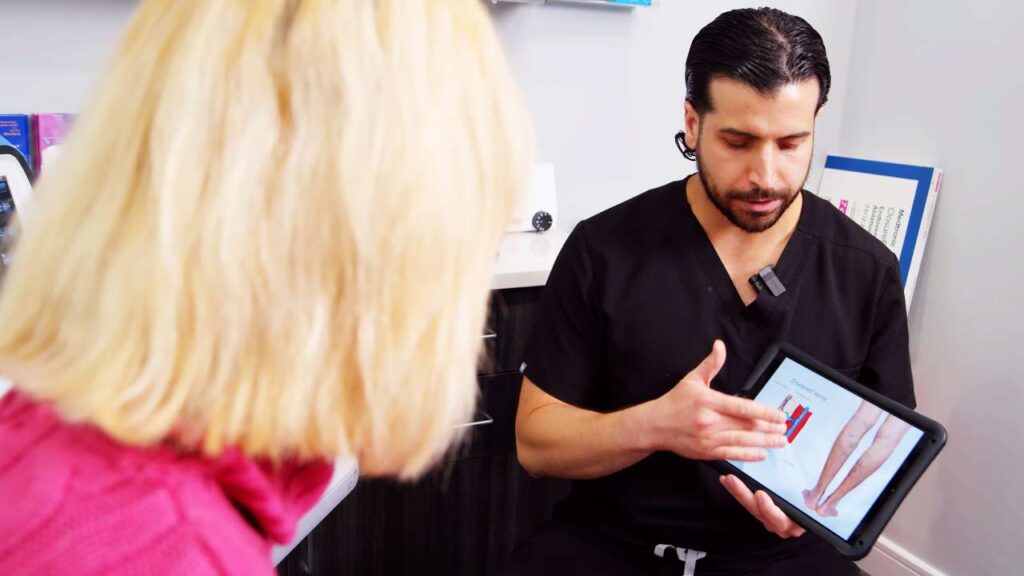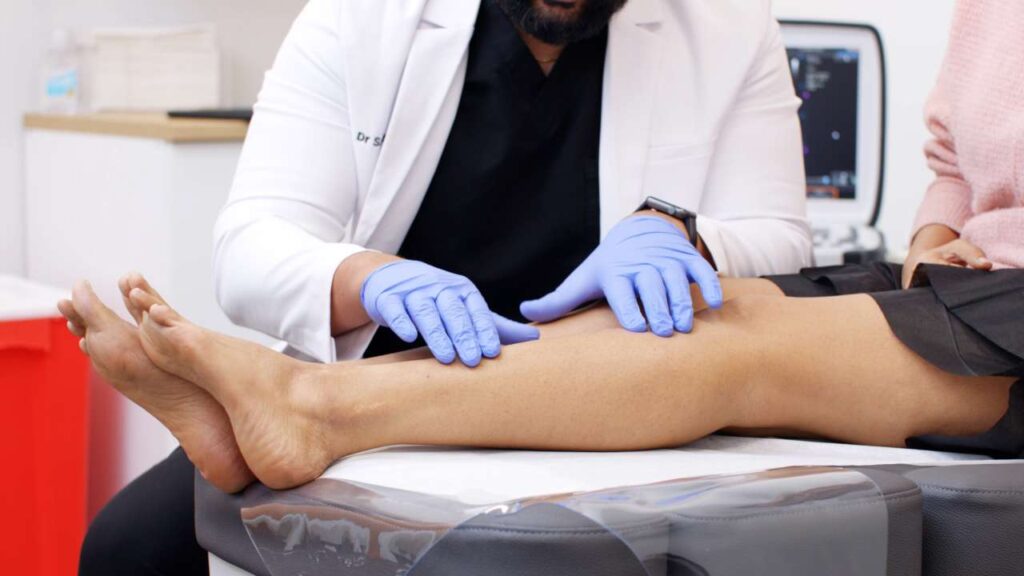Vein Doctor Near Me in Newark: Varicose Veins FAQs
These days, most people go through online sources whenever they experience medical symptoms, and that’s true for varicose veins and spider veins. When people notice varicose veins, their first instinct is to go through online articles. Unfortunately, articles available online often peddle misinformation about varicose veins and vein treatments. As such, when patients consult our vein clinic, we have to go through the arduous task of breaking down their assumptions.
Some of the most common myths are that varicose veins are harmless or can be treated with home remedies, or that varicose veins can only be treated with complicated vascular surgery. These myths are based on outright lies or information that’s at least a decade too old. Varicose veins are actually quite dangerous, they can’t be treated with home remedies, and modern minimally invasive varicose vein treatments are nonsurgical, painless, and completely safe.
When it comes to seeking medical advice, you should only rely on reputable vein doctors and vein centers. Dr. Sareh Rajaee is a board-certified vein doctor near me in Newark, specializing in the diagnosis and treatment of varicose veins and spider veins using minimally invasive procedures. Dr. Rajaee has a perfect track record of treating vein disease, and she currently serves as the vein doctor at Vein Treatment Clinic, Clifton.
If you have any questions or concerns about varicose veins, please contact Dr. Sareh Rajaee. You can find our vein doctor’s clinic near the garden state parkway, just past the Ford dealership on route 46-E, and less than 15 minutes from Newark via NJ-3 E and NJ-21 S. Meanwhile, you can also go through this article for answers to some of the most common questions and concerns about varicose veins.
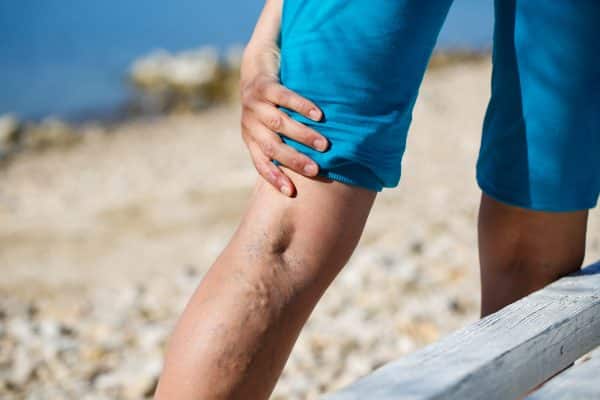
How do I know if I have varicose veins and spider veins?
Varicose veins and spider veins are the most easily-identifiable signs and symptoms of venous insufficiency. The only issue is that most people don’t know how to distinguish between varicose veins and spider veins, or assume they’re synonymous terms. Varicose veins and spider veins are indeed both dilated blood vessels with excessive blood accumulation, usually caused by vein disease, but they have some striking differences.
Essentially, varicose veins and spider veins represent different stages in vein disease. Spider veins occur due to minimal blood accumulation in leg veins, so they appear in dense clusters just underneath the skin’s surface. Varicose veins indicate advanced vein disease, i.e., excessive blood accumulation in leg veins, so they appear as bulging veins that protrude from the skin’s surface in a twisted, tangled, and knotted form.
Put simply, spider veins look like a network of spider webs on the skin’s surface, and varicose veins look like dense masses of knotted and tangled ropes bulging out of the skin’s surface.
Are varicose veins a sign of peripheral artery disease?
Peripheral artery disease is a circulatory problem in which the arteries get narrowed due to fatty deposits and calcium buildup. The narrowing of arteries prevents smooth blood circulation to the limbs, leading to leg pain, leg ulcers, and thinning of leg hair. People often assume varicose veins are caused by peripheral artery disease because they have some of the same signs and symptoms, including leg ulcers and leg pain. However, varicose veins are the result of another circulatory disorder — chronic venous insufficiency.
While peripheral artery disease affects the arteries, chronic venous insufficiency affects the veins. Venous insufficiency is a condition in which your vein valves — generally responsible for smooth one-way blood circulation to the heart — collapse, causing blood to flow backward. As such, vein disease leads to blood accumulation in your leg veins, eventually leading to vein dilation, and the formation of varicose veins and spider veins on the skin’s surface.
What happens if I don’t seek diagnosis and treatment for varicose veins?
Varicose veins are dilated blood vessels with excessive blood accumulation, caused by venous insufficiency. Vein disease is a chronic condition that worsens with time. The continued accumulation of blood in leg veins will lead to further vein dilation, eventually weakening the varicose veins’ walls. When that happens, your varicose veins are prone to bursting upon the slightest of impact. Burst varicose veins lead to profuse bleeding, and you have to be taken to the emergency room.
Besides burst varicose veins, chronic venous insufficiency also leads to severe complications, such as skin disease, skin discoloration, leg ulcers, and deep vein thrombosis. The accumulated blood in your leg veins may harden into blood clots, which can then travel to your lungs, leading to a potentially lethal condition called pulmonary embolism. Meanwhile, leg ulcers are non-healing wounds and sores due to the lack of effective blood circulation in your leg veins.
Do I need vascular surgery to get rid of these ugly varicose veins?
Vascular surgery is an outdated and obsolete procedure for varicose veins and venous insufficiency. In the past, vein doctors used vascular surgery to physically extract the diseased saphenous vein, which required hospitalization and had a high risk of infections and complications.
However, the advancements of vein care and technologies have paved the way for nonsurgical and minimally invasive varicose vein treatments, such as radiofrequency ablation, endovenous laser ablation, VenaSeal, and sclerotherapy. Unlike vascular surgery, minimally invasive diagnosis and treatments are nonsurgical, cause little to no pain, are completely safe, and conclude within an hour with no downtime.
Schedule an appointment with our vein center near Newark, NJ.
Vein Treatment Clinic is the best state-of-the-art vein center in New Jersey, specializing in the latest minimally invasive varicose vein treatments. For more information and medical advice, please schedule an appointment with our board-certified vein doctor today.
